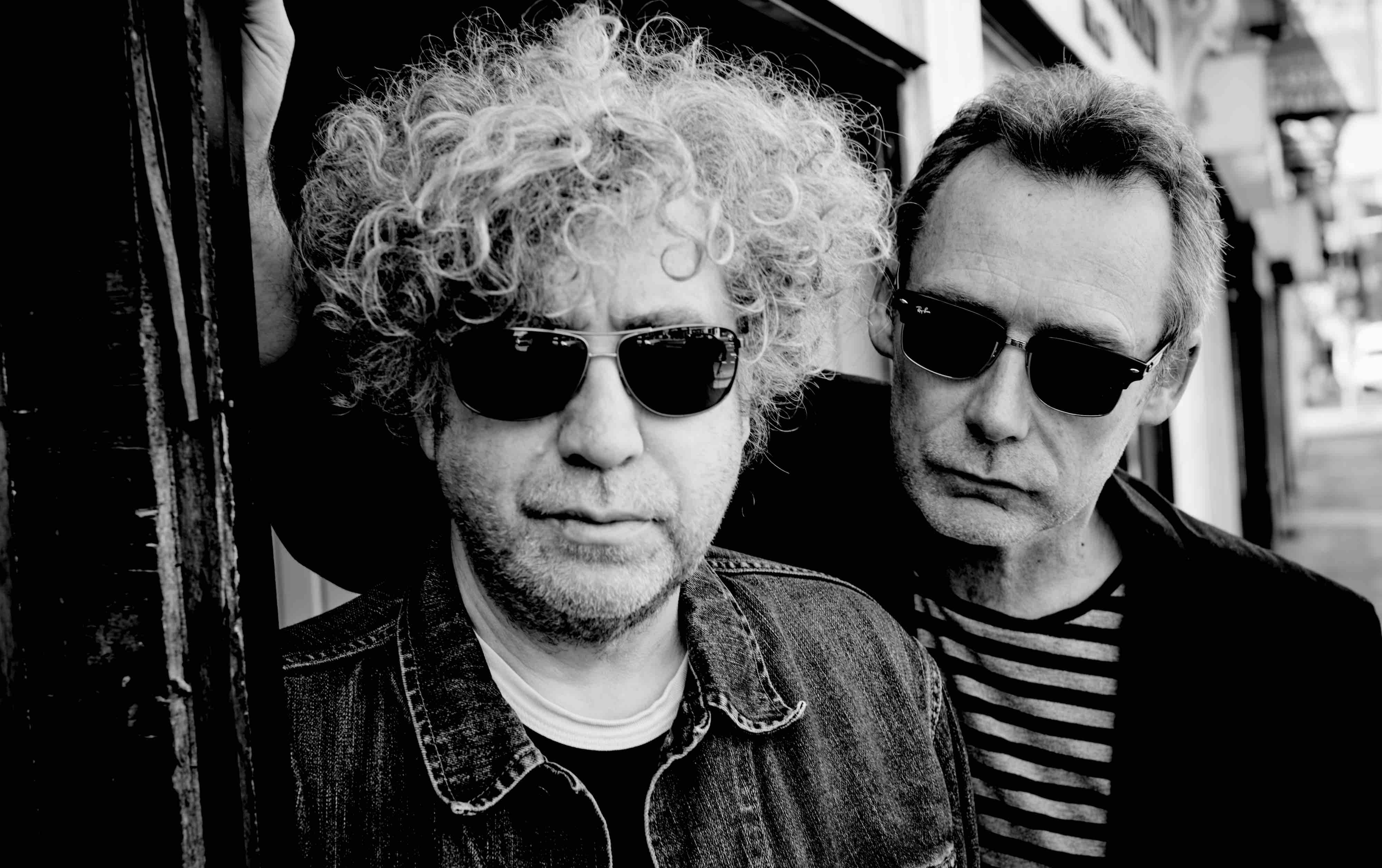Formed by brothers Jim and William Reid in 1983, The Jesus and Mary Chain quickly became one of alternative rock’s most revered bands. Bathed in swathes of feedback that obscured the tender vulnerability at the heart of the Scottish group’s sound, there was a great distance between who the band were and what they sounded like—at first, anyway.
That tension, though, has always existed at the core of the band, and very much defined them. Just listen to their best-known song, “Just Like Honey,” and the way Jim’s vocals drift blissfully beneath what sounds like the buzzing of a million broken guitars. Yet the band have always been ones to move away from what was unexpectedly expected of them as their profile rose and they became one of the most influential names in any corner of rock music. Their history has been littered with tension and turmoil, drink and drugs, and then a break between 1999 and 2007 due to disagreements between the brothers. But time and age did what they do, and the band got back together, even releasing a seventh album, Damage and Joy, in 2017.
Now, as they return to America for the first time in half a decade, Jim Reid reflects on the hangovers and the legacy of the band—and the difference between those two things—as the group wraps up a string of dates in the US including headlining Substance 2022 in Los Angeles last weekend and a pair of stops in Texas this week (they hit the Granada Theatre in Dallas on October 25, followed by a slot at Levitation in Austin on the 27th—you can find info and tickets for both shows here).
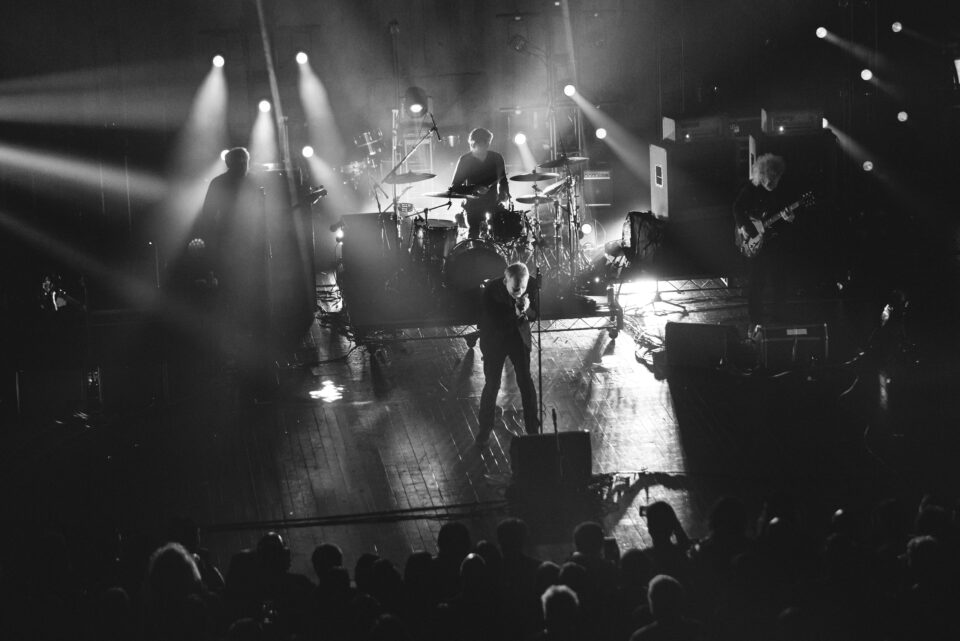
The Jesus and Mary Chain at Substance 2022 / photo by Alejandro Lomeli
You’re very clearly a legendary band, but also one that wants to keep progressing. How do you balance those things out?
I mean, you don’t really have to. We’re both terribly proud of the body of work that we’ve released, but you just don’t let it be like a ball and chain, really. There’s new records to make, and just because you have a past that a lot of people have heard of doesn’t mean you don’t also have a future. We just get on with the next show, the next record, or whatever.
“There’s new records to make, and just because you have a past that a lot of people have heard of doesn’t mean you don’t also have a future.”
There’s an interview from a few years ago, though, in which your brother said that making Damage and Joy was “excruciatingly stressful.”
The thing is, every record is like that. Making records is a very stressful thing to do. You’ve got all of these little babies that you take to the studio, and you’re thinking, “Right, how’s this going to go down?” During the recording process it can kind of sometimes get away from you, and you’re thinking, “Well, this is nothing like what I had imagined this one was going to be like, are we fucking it up?” And you don’t really know until the very end of it. But all the records that we’ve made, we stand by them today. I know why we made them, and if they wouldn’t have been any good, we wouldn’t have released them. At the end of the day, that’s what it’s all about—whether you can look back at what you’ve done and feel good about it. And we do.
With that in mind, when you’re playing these older songs, how do you relate to them? Do you remember who you were when you were writing them?
We did that Psychocandy tour five years ago or whatever it was, and that was weird, because I didn’t think it would be like that. I thought, “Right: walk onstage, do a bunch of songs, what’s the big deal?” But playing the album in its entirety in the order it was recorded in—and some of the songs we’d never played onstage, so we were doing some things wrong—did make me think of sitting in my mum and dad’s living room with an acoustic guitar. So there were moments where I had to stop a little tear dripping down my cheek.
Do you think people misunderstand the tenderness behind your songs?
Well, after Psychocandy, that’s why Darklands existed, basically. When Psychocandy came out it got pretty favorable reviews, but it seemed like everybody was talking about the guitar sound and not enough people were talking about the actual songs underneath the guitars. So we wanted to do an album that sounded a bit more exposed, where we weren’t hiding behind a wall of noise.

The Jesus and Mary Chain at Substance 2022 / photo by Alejandro Lomeli
Do you remember if that helped you reconcile what you wanted to do with music? Did it change people’s perception of who you were back there?
You know, a lot of people got it, and some people didn’t. Some people just wanted Psychocandy Part II, which would have been the really easy thing to do. In some ways, doing Darklands was almost as shocking to a lot of people as Psychocandy was, because nobody expected it, you know? The second album, it sounds nothing like the first. So we brought a lot of people with us, we left some people behind, and we made new fans. At the end of the day, you make records for yourself, and you just hope to hell that other people get it.
“If [art] only makes sense in the decade that you made it, you’ve kind of really missed the point. You failed on some level. And that’s what we’re trying to avoid, but it’s up to other people to say whether we’ve succeeded.”
You’ve had a notoriously difficult relationship with your brother over the years. What impact did that tension have on the band’s music?
The difficult relationship was only toward the end of that first period of the band. In the ’80s, we got on very well. I mean, we’ve always had arguments, but it was always about the music, and it was always constructive. And after the arguments, we were absolutely fine with each other. Whereas in the ’90s, at some point it got that we argued about everything. And after the arguments, it carried on. There was resentment and it was over the most idiotic things. Maybe we needed to go to a mediator, because I still to this day don’t really understand what that was all about. But we seemed to get on each other’s nerves, and we seemed to enjoy getting on each other’s nerves—and then it became unworkable and thoroughly unpleasant and the band ended for nine years. And that was that.
How has the purpose of the band changed as you’ve gotten older, compared to when you first started out?
It’s remarkably similar, if I’m being honest. Making a record now is very much the same as making a record then. I mean, the world has changed, and the music business has changed. But when you’re actually in the studio, or if you’re writing a tune, it’s just the same old, same old, really—you’re sitting there with a guitar and you come up with a tune, you want to put some words to it. The studio is like a little bubble, and the world doesn’t exist—you’ve just got to get this record made.
How do you think those older songs relate to the world now, then?
I mean, it’s art. Syd Barrett songs made perfect sense to me when I heard them 25 years after he made them, you know? And if I walk into an art gallery and there’s a Van Gogh painting—I mean, that was painted like 150 years ago, but it still makes utter sense to me now. If you’re doing it right, it shouldn’t matter what decade you’re engaging with these things, I think. They should just make sense. And, in a way, if they only make sense in the decade that you made it, you’ve kind of really missed the point. You failed on some level. And that’s what we’re trying to avoid, but it’s up to other people to say whether we’ve succeeded.
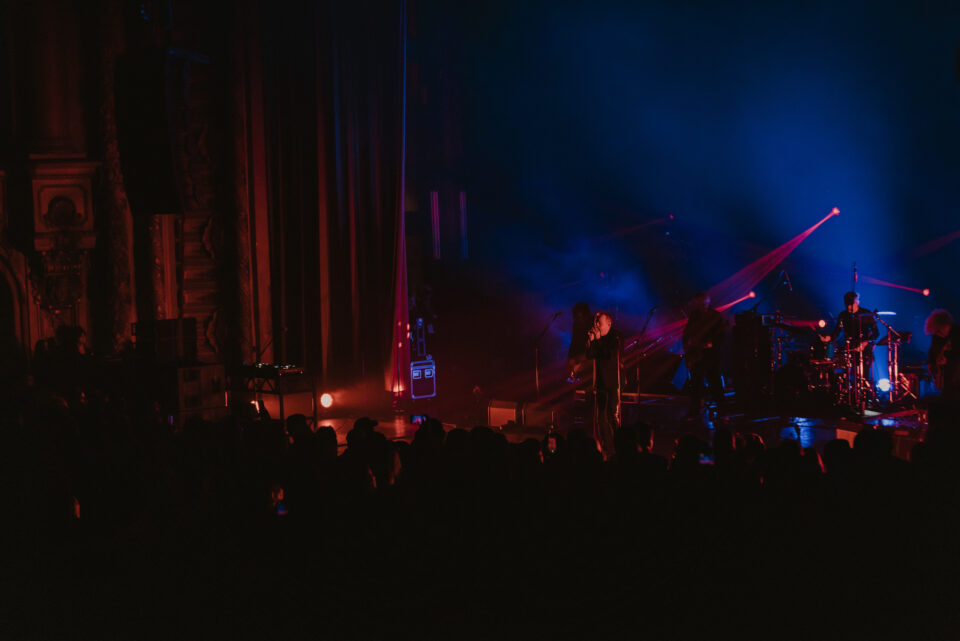
The Jesus and Mary Chain at Substance 2022 / photo by Alejandro Lomeli
Do you still get the same sense of catharsis from making and playing music?
That’s the weird thing: You get older, the world changes, your life changes, but the music side of it is weirdly the same. You make records for the same reason—just because you don’t like other people’s records. “Why don’t people make records like this?” Then you think “Well, fuck it, we’ll do it.” And that’s it. That’s what it’s all about.
“You make records because you don’t like other people’s records. ‘Why don’t people make records like this?’ Then you think ‘Well, fuck it, we’ll do it.’”
Speaking of making records, in 2021 you said you were doing that. What’s going on with that?
It’s still happening. We started recording a record just before COVID hit. We went into the studio, we’d been in there for a couple of months, but then the shit hit the fan. And for a year, nobody did anything. We went back into the studio in November or December last year and we haven’t been in since then. But we’re intending to pick up where we left off at any time now.
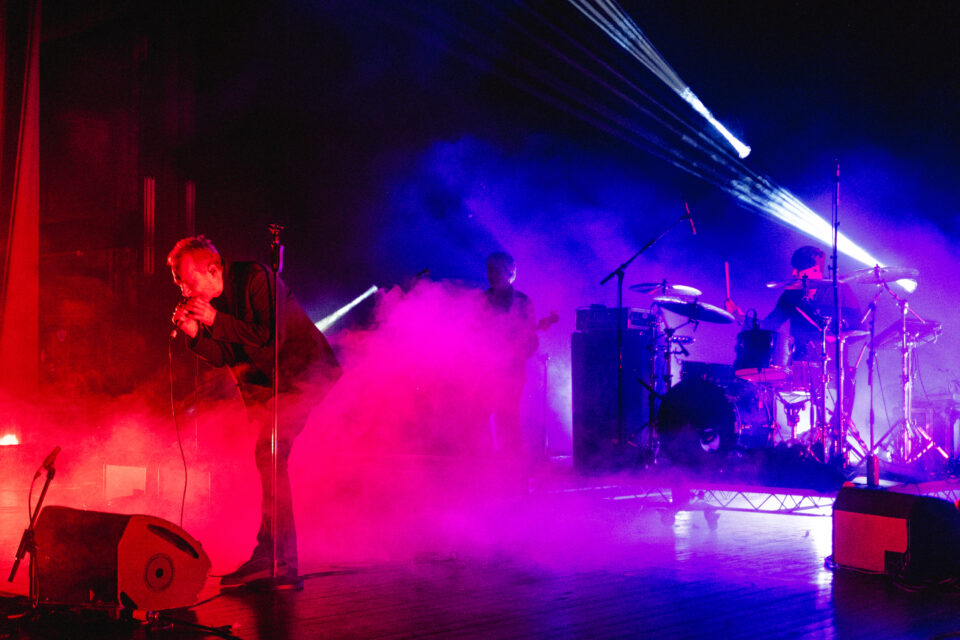
The Jesus and Mary Chain at Substance 2022 / photo by Alexander Raborn
You’ve said that being in the music industry was very unhealthy for you because of all the booze and drugs. Is it more healthy now than it used to be?
I mean, I was kind of ill-equipped to be a singer in a rock ’n’ roll band. I’m incredibly shy. I never imagined that I would ever be standing front and center stage in a band, and when I found myself in that position, the only way I found that I could do it was to get absolutely off my tits. And I did that for decades. Then, when the band ended, I realized that I couldn’t stop drinking. And I’ve struggled with it and I struggle to this day, but it’s much better now than it was back then. I’ve got a family, I’m not stumbling around, I’m not waking up in doorways and shit like that. It’s manageable.
What starts off as a coping mechanism soon becomes something else entirely. But it’s also just part and parcel of the industry, isn’t it?
Well, it is. And the other thing is it’s the only job where people are actually disappointed if you’re not fucked up. When I’ve been in my periods of sobriety, I can see the look of disappointment when I meet fans that you’re not falling over in a heap and that you’re actually kind of pretty together. You’d think people would be glad for you, but often people are like “Oh, he’s sober, boring” [laughs].
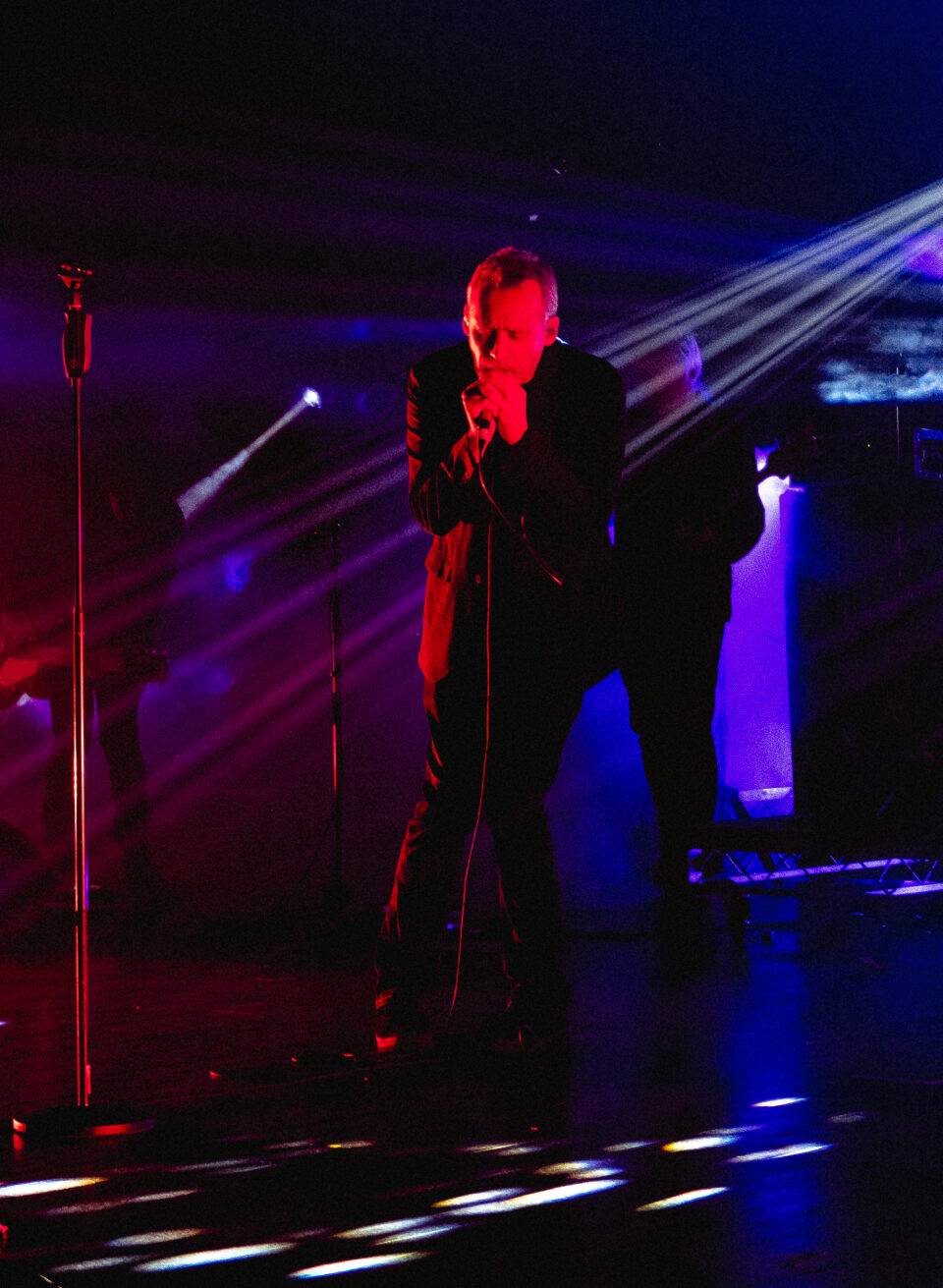
The Jesus and Mary Chain at Substance 2022 / photo by Alexander Raborn
Which is really problematic, because it can become a self-fulfilling prophecy.
Yeah. Although I feel that less these days. I think younger bands tend to be sidestepping that trap a bit better than my generation did. There’s no benefits to getting fucked up. You’re not more creative, it’s just simply an excuse. I mean, I got drunk for the reasons I said—I felt like I couldn’t do it otherwise. But the people that take drugs and get drunk and say “Oh, I need to do it, man, it helps be creative”—that’s nonsense. That’s an excuse.
“When I’ve been in my periods of sobriety, I can see the look of disappointment when I meet fans that you’re not falling over in a heap and that you’re actually kind of pretty together.”
So what are your hopes for this American tour?
Gosh, I just hope that people enjoy it. I enjoy this more now than I ever did, I think, and I just hope that people connect. We don’t do scissor kicks, we’re not a showbiz band, and we can come across as dour at times, but that’s just the way we are.
You mean you’re not really nice, happy people beneath all that feedback fuzz?
[Laughs] Oh, I wish! FL

